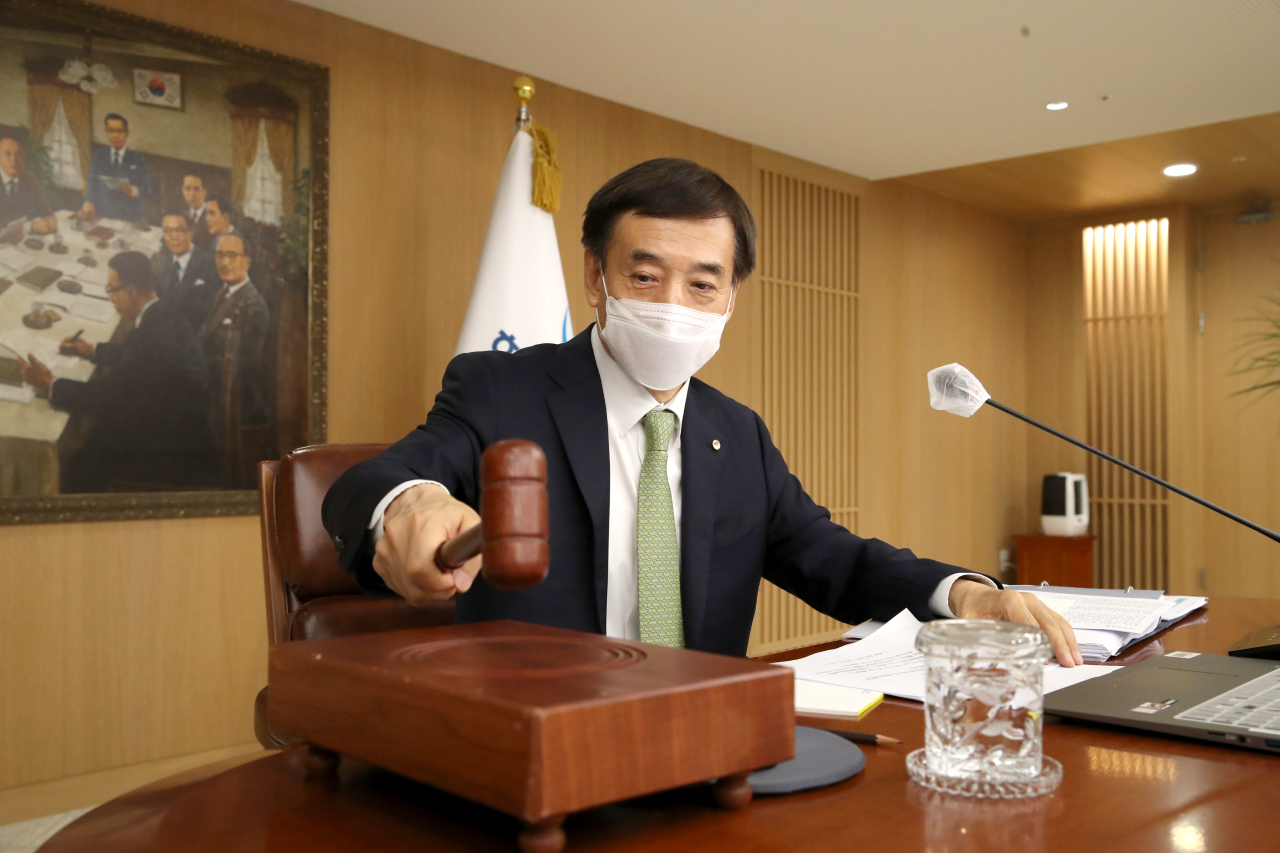 |
BOK Gov. Lee Ju-yeol (Yonhap) |
With South Korea’s central bank chief continuing to adopt a more hawkish tone on monetary policy, anticipation is growing for an earlier-than-expected interest rate hike.
The US Federal Reserve, meanwhile, has officially expressed its commitment to maintaining its interest rate near zero, with experts projecting no rate hikes until after the first half of next year. This could mean that the Bank of Korea raises its key rate ahead of the US Fed, a rare occurrence that hasn’t happened in more than a decade.
The BOK raised its key rate by 25 basis points to 2.25 percent in July 2010, years ahead of the US Fed’s next rate hike in December 2015. The US Fed maintained its interest rates in the range of 0-0.25 percent from December 2008 to December 2015 in the aftermath of the 2008 financial crisis.
According to Bloomberg, five global investment banks and think tanks forecast the BOK will raise its key rate to 0.75 percent in the last three months of this year, from the record low of 0.5 percent where it has been frozen for more than a year. The five institutions included Goldman Sachs, JP Morgan and Barclays.
Four institutions, including Deutsche Bank and Societe Generale, forecast a BOK rate hike in the first quarter of next year, while 11 -- including the Bank of America and global forecasting firm Oxford Economics -- chose a broader time frame of “within 2021,” the same Bloomberg data showed. The data involved a total of 29 global investment banks and think tanks.
On the other hand, Bloomberg data showed that over 90 percent of 67 global investment banks and think tanks surveyed believe the US Fed won’t raise its key rate next year, further feeding the outlook that the BOK could take that step before its US counterpart.
“We have readjusted the timeline of the BOK’s expected rate hike to the fourth quarter of this year from next year,” Daishin Securities analyst Kong Dong-rak said Friday.
“The rate hike could come around November after the BOK communicates with the financial market and holds internal discussions on the monetary policy schedule,” he added.
The decision by several investment banks and think tanks to adjust their forecasts follows remarks from BOK Gov. Lee Ju-yeol on Friday at an event celebrating the central bank’s 71st anniversary.
Lee said the BOK would start “normalizing the current easing of monetary policy at an appropriate time,” on the condition that the economy continues its momentum of solid recovery.
The BOK chief pointed to the nation’s snowballing household debts and its heated housing market, saying this situation had led to a financial imbalance amid growing concerns about inflation.
Lee’s remarks hint that the BOK is currently laying the groundwork for an exit from its COVID-19 stimulus plans.
Last month, after the latest monetary policy meeting, he said any decision to undertake a rate hike by the end of the year would depend on the development of the Korean economy, signaling his first shift in tone in more than a year.
If the BOK fails to take timely steps on a rate hike, debt interest payments per Korean household could gain as much as 2.5 million won ($2,249.62) on average, a recent report from the Korea Economic Research Institute showed. Following in the US Fed’s footsteps too early could further burden households with debt, but belated moves could trigger a massive outflow of foreign investment, according to KERI.
While the US Fed has no plans to hike rate for the time being, recent comments by the officials there suggest that the issue of tapering will be on the table soon and asset reductions may kick-off as early as the second-half of this year.
By Jung Min-kyung (
mkjung@heraldcorp.com)








